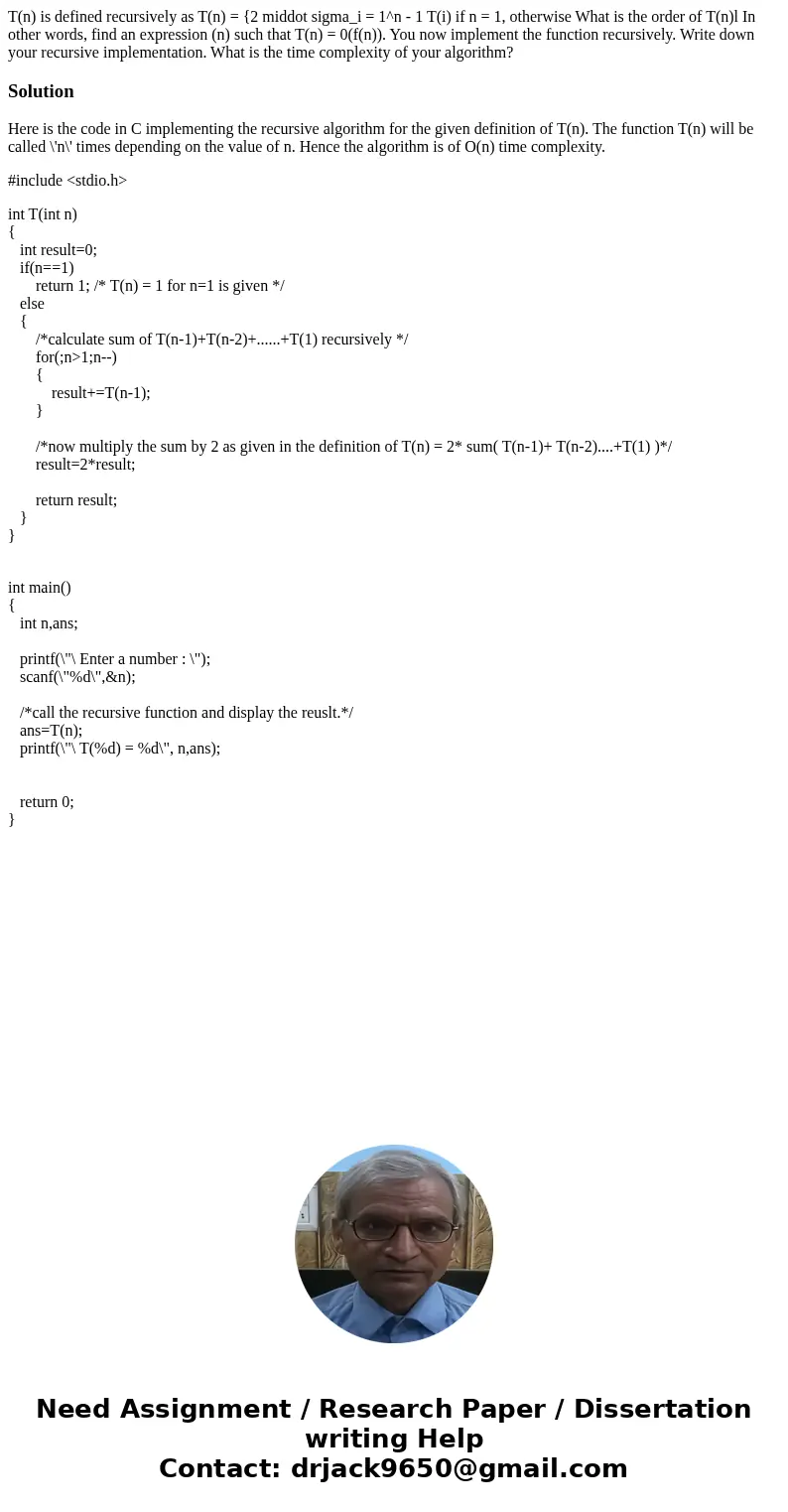Tn is defined recursively as Tn 2 middot sigmai 1n 1 Ti i
Solution
Here is the code in C implementing the recursive algorithm for the given definition of T(n). The function T(n) will be called \'n\' times depending on the value of n. Hence the algorithm is of O(n) time complexity.
#include <stdio.h>
int T(int n)
{
int result=0;
if(n==1)
return 1; /* T(n) = 1 for n=1 is given */
else
{
/*calculate sum of T(n-1)+T(n-2)+......+T(1) recursively */
for(;n>1;n--)
{
result+=T(n-1);
}
/*now multiply the sum by 2 as given in the definition of T(n) = 2* sum( T(n-1)+ T(n-2)....+T(1) )*/
result=2*result;
return result;
}
}
int main()
{
int n,ans;
printf(\"\ Enter a number : \");
scanf(\"%d\",&n);
/*call the recursive function and display the reuslt.*/
ans=T(n);
printf(\"\ T(%d) = %d\", n,ans);
return 0;
}

 Homework Sourse
Homework Sourse